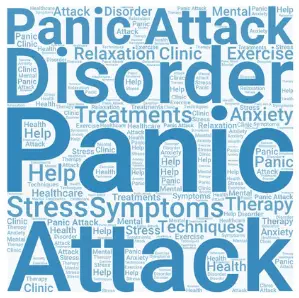There are many ways to treat panic disorder. The most common approach is through medication and therapy. Medication can help to control the symptoms of panic disorder. This can make it easier for the person to manage their condition. Therapy can provide support and guidance in dealing with the condition. There are also many self-help options available. Some of them are relaxation techniques and support groups. Panic disorder is a treatable condition. With the proper treatment, people can live everyday, healthy lives.

Panic disorder is a serious mental health condition that can profoundly impact a person’s life. Left untreated, it can lead to significant impairment in everyday functioning. There is also an increased risk of suicide. There are effective treatments available for panic disorder. But many people do not receive the help they need. There are many reasons why this may be the case. Some of them are lack of access to care, stigma, and misperceptions about the condition. It is vital to raise awareness about panic disorder and its treatment. Then only more people can get the help they need.
Panic disorder is a type of anxiety disorder that is characterized by recurrent and unexpected panic attacks. A panic attack is a period of intense fear or discomfort. Physical symptoms such as heart palpitations, shortness of breath, and dizziness accompany panic attacks. Panic disorder can have a significant impact on a person’s life. They may avoid situations or activities that they fear will trigger a panic attack. This can lead to social isolation and missed work or school. It can also create problems in personal relationships. Left untreated, panic disorder can lead to the development of other mental health conditions. These include depression and substance abuse. It can also increase the risk of suicide.
Effective treatments available for panic disorder include cognitive behavioral therapy and medication. But many people do not receive the help they need. One reason for this is the lack of access to care. Mental health services are often underfunded and understaffed. So it makes it difficult for people to get the help they need. Another reason is stigma. Mental illness is often seen as a sign of weakness or character flaws. This can prevent people from seeking help. Finally, there are misperceptions about panic disorder and its treatment. Many people believe that there is no effective treatment available or that treatments are invasive or dangerous. In reality, panic disorder is a treatable condition with many effective options.
Raising awareness about panic disorder and its treatment is critical. Only then can more people get the help they need. We have to increase our understanding of the condition. Then dispel the myths about its treatment. Then we can reduce stigma and barriers to care. This will lead to more people getting the help they need to manage their condition. They can then live fuller, happier lives.
Panic disorder can be a very debilitating condition. It is also completely treatable. In fact, according to the National Institute of Mental Health, about 70 percent of people with panic disorder will see a significant decrease in symptoms after receiving treatment.
An estimated 2.7% of Americans have panic disorder in any given year, and it is twice as common among women as men. Panic disorder develops in young adulthood but can occur at any age. You may experience recurrent unexpected panic attacks if you have a panic disorder. A panic attack is a period of intense fear or discomfort that peaks within minutes. It includes physical symptoms such as a racing heart, shortness of breath, or dizziness.
If you have panic disorder, there are several things you can do to manage your condition and reduce your symptoms. First, it is essential to understand that panic attacks are not dangerous. You will not lose control or go crazy during one. This can be a difficult concept to grasp. It is important to remember that panic attacks are only temporary. They will finally end.
Second, you should develop a coping strategy for when you do experience a panic attack. This might involve deep breathing exercises, visualization, or positive self-talk. It is important to find a coping strategy that works for you. Then it would help if you practiced it regularly so that you are prepared when an attack occurs.
Finally, you should seek professional help if your panic disorder is severe or self-help strategies are not working. There are many effective treatments for panic disorder, including medication and therapy. It is best to consult a qualified mental health professional. He can help you determine the best course of treatment for your specific situation.

